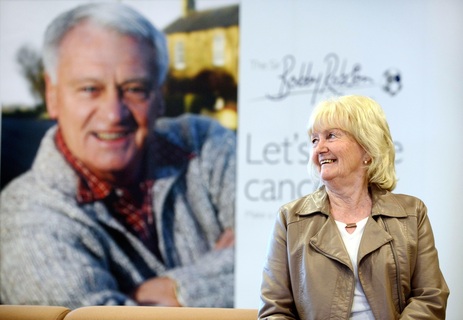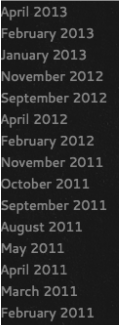FIFTH ANNIVERSARY OF SIR BOBBY ROBSON’S DEATH
The football legend is greatly missed by those who knew him – and those who knew of him.
The former County Durham pitman enjoyed an incredible career as a footballer and manager and his influence within the game he loved continues to be felt today through the many people he worked with, inspired or helped along the way.
During his last 18 months, as he was receiving treatment for cancer for the fifth time, Sir Bobby was focused on a new goal - for once, away from a football pitch.
In March 2008, after a request for help from his oncologist, Professor Ruth Plummer, he launched a cancer charity that he said he hoped would become his legacy.
His wife, Lady Elsie, and three sons Paul, Andrew and Mark, are committed to continuing the work he began through the Sir Bobby Robson Foundation and it has now raised £7.3 million to find more effective ways to detect and treat cancer.
Lady Elsie has been reflecting on the last five years and the importance of the Sir Bobby Robson Foundation to other people facing the pain caused by cancer.
Looking back on the tremendous outpouring of grief and the tributes left at football grounds like St James’ Park when her husband died, she said:
“It was difficult, very difficult for us all, for the family especially, and I suppose you just get through it. You don’t sort of understand until much, much later what it all meant.
“The public responded in such a compassionate way and I think it was something they needed as well at that time. It was wonderful to go and see the spread of flowers and tributes and memorabilia left at St James’ Park and, I think I’ve said this before, for 11 days at that time it didn’t rain, which is unusual in Newcastle, even in August.
“We didn’t have a spot of rain so after that time, someone asked me what we should do with it all, that we really needed to make some decisions, so we decided to clear it all and the shirts were laundered, boxed up and stored until they were transported to various parts of Africa. It was remarkable the outpouring of grief. It was something I think the football public needed at the time, as well as us. We needed it.
“We learned a long time ago to share him in life and we sort of shared him in death as well. That was something which was part of it all and you deal with it.
Sir Bobby had a great passion for his charity, which he called his “last and greatest team.”
Lady Elsie: “That was a great thing for Bob, that he had the charity. It gave him a function and a goal to lead his life in that way. He was very, very committed to the charity. In fact, I think he was more committed to it than he had ever been, or he felt he was achieving more in a helpful way than he had been as a famous person in his own profession.
“The charity has helped enormously. It’s given us a combined thing as a family to aim for. It’s proved over and over again the respect he was given, for the work he did. I think that has come over to us all in a very strong way. Quite unbelievable what we’ve raised in that short time.”
Sir Bobby was humbled by the support his charity received.
Lady Elsie: “We’ve achieved more than we ever expected. He was hesitant in the beginning about whether we’d raise the initial half a million we needed to help Professor Plummer and some of his friends said ‘yes, yes, yes, of course we will’ but he had his own doubts. Now, he would be astonished to know what we’ve achieved and what we’ve done with the money. It unites people who are interested in football and affected by cancer. It unites them somehow across our region and beyond.
“He was always a fighter, right throughout his life. He always wanted to achieve. That never left him and with the charity that was very much the case. He wanted to fight on. He had an aim in life and that carried him through really. I suppose it gave him less time to focus on his own illness. We would drive out daily, or certainly two or three times a week, to various happenings in the area and that gave him a kind of a lifeline.”
Sir Bobby’s oncologist, Professor Ruth Plummer, needed £0.5 million to equip a cancer trials research centre and asked Sir Bobby if he knew anyone who might like to help. He responded by launching his charity to raise the money she needed and in February 2009 he officially opened what became The Sir Bobby Robson Cancer Trials Research Centre at the Northern Centre for Cancer Care, Freeman Hospital, Newcastle upon Tyne – he was very proud that the Centre carried his name.
Lady Elsie: “He met with a great team at the hospitals in Newcastle. That inspired him. He had the time. Although he was ill, he still had those last few months, the time, that maybe other people who would still be busy with their working life wouldn’t’ have. Maybe they couldn’t do what he did because he had the space and the drive and the ambition. It just gave him that feeling ‘well, I’m still doing things, I’m still achieving, I’m still worthwhile.’
“As a football manager you’re probably faced with dealing with problems for your whole working life. You solve one little problem and then another one crops up, and then another one and then another one. And I think he missed all of that in retirement. Well, he never did retire basically. But it kept him going. That’s what he enjoyed.
“But he wouldn’t associate himself in that way. He was a very unselfish person. He really left an amazing legacy.”
The Sir Bobby Robson Foundation is going from strength to strength and last year was its biggest fundraising year to date. Lady Elsie said: “Well, we have been busy, organising all the funds and putting them to absolutely marvellous use. If we hadn’t had the medics as part of our trustees, we would have floundered I think. Because of their knowledge and their drive and ambition, we’ve done wonders.
“People say to me that the charity’s just going to go on and on and I really believe that. It will carry on and go into infinity or whatever you call it. I can’t see it coming to an end. Can you? I hope not.”
Sir Bobby’s football influence and success was not just felt in England.
Lady Elsie: “You’ve got to remember that he did move away and became well known in other parts of this country and in Europe. Although it was really the North East that always held his great loyalty, but because he did all that travelling - we did nine years in Europe - and because he had success everywhere … I remember at the memorial service at Durham Cathedral that Sir Alex Ferguson touched on that, didn’t he? He didn’t just do it at one club or even two. He did it at a lot of clubs and took them to success. He met a lot of people and made a lot of friends in those cultures.”
Sir Bobby’s influence on football continues today partly because he shared so much of his knowledge and enthusiasm for the game and through the people he worked with, mentored and inspired. Sunderland AFC’s Sporting Director, Lee Congerton, worked closely with Frank Arnesen, who in turn worked closely with Sir Bobby at PSV Eindhoven.
Lady Elsie: “Bob’s thoughts on football continue to be handed down. Lee (Congerton) spoke very kindly to me recently and he was telling me about Frank Arnesen and how Frank was very much a student of Bob’s in Holland at that time. And then he went on to great things himself and went to some really wonderful clubs.
“I met Frank again last year and he said he’d just learned a lot from Bob and in the nicest possible way, he just wants to share it. He was that sort of character. It’s a lovely tale, isn’t it?”
Asked if she was proud of the legacy Sir Bobby has left us through his Foundation, Lady Elsie said: “Very. I’m extremely proud of it. I never thought we’d achieve what we’ve achieved, but it just keeps going on and on. We’ve had such a wonderful response from people, from everyone. You still see how people’s faces light up when you say his name. You see the change. That’s a very powerful thing. We all admire him so much and miss him, of course, because he was such a larger than life man. In the best way possible, he had to be obeyed! Five years. A long time.”
To make a donation, view messages of support, or for more information please visit www.sirbobbyrobsonfoundation.org.uk or donate by sending a cheque to Sir Bobby Robson Foundation, Charitable Funds Office, Peacock Hall, Royal Victoria Infirmary, Newcastle upon Tyne, NE1 4LP.



 RSS Feed
RSS Feed
